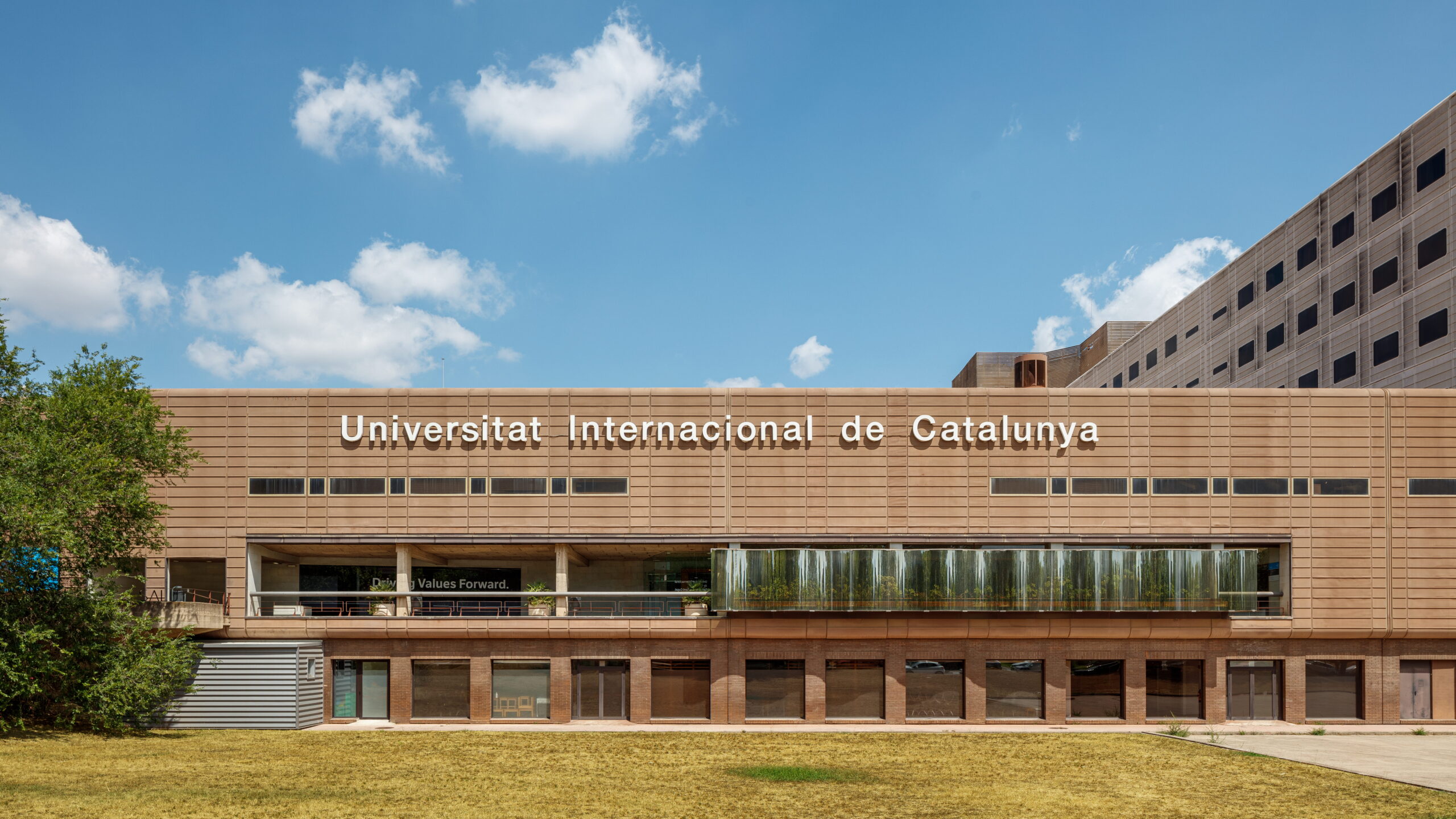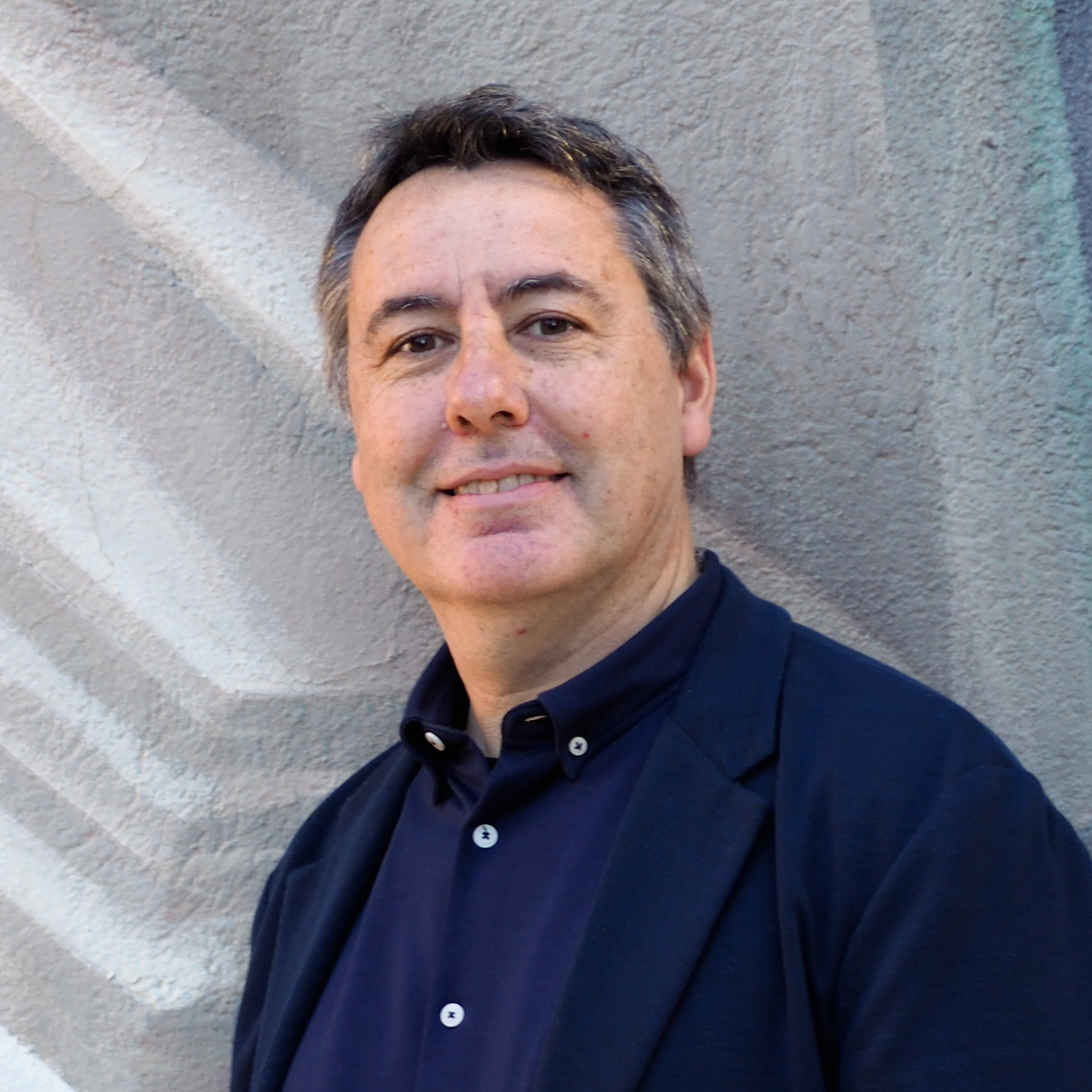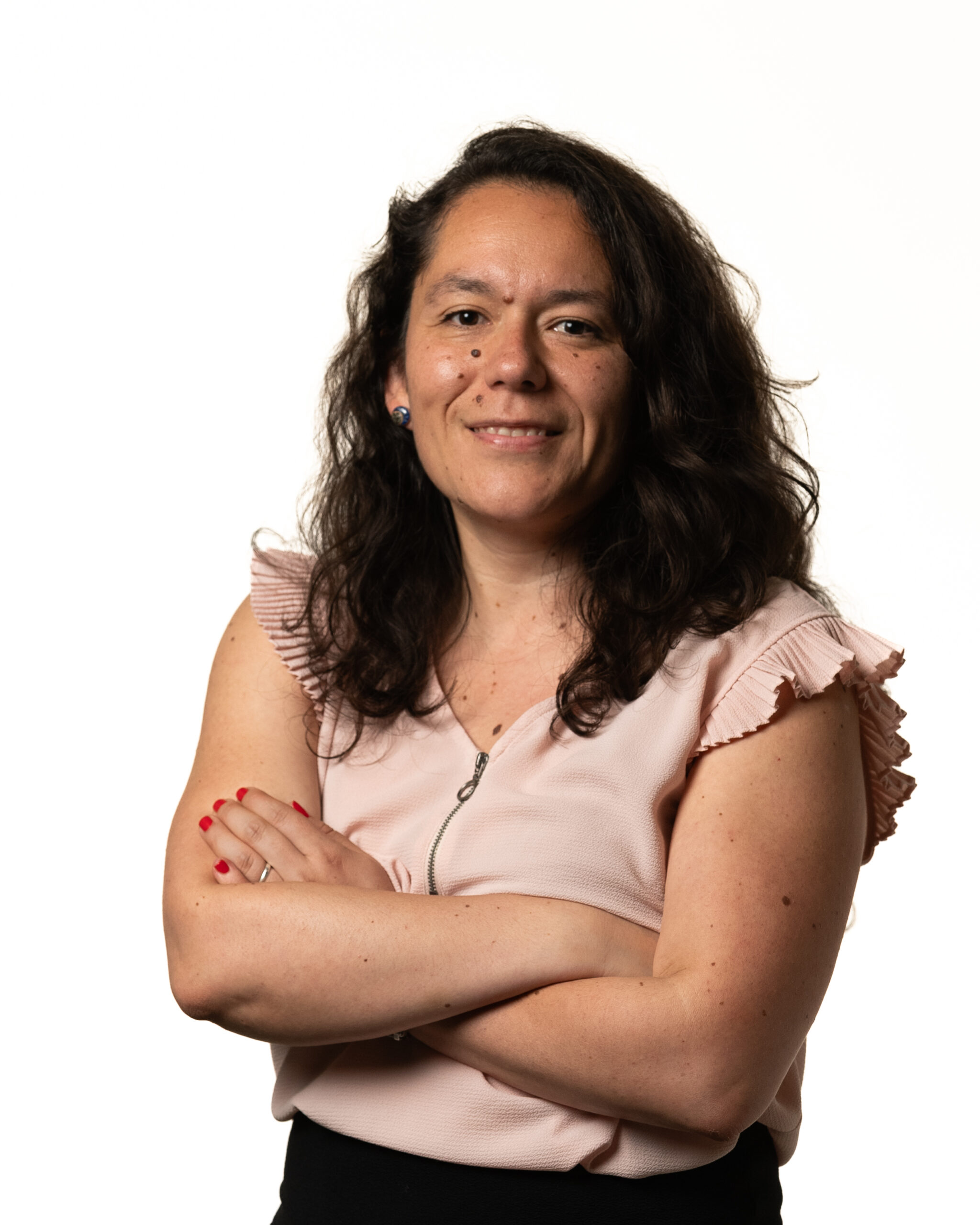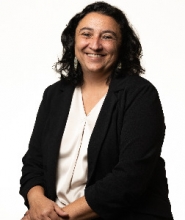
Founded in 1997, the Universitat Internacional de Catalunya (UIC Barcelona) is a private foundation and has its own legal status. As a non-profit institution, this university aims to provide a service to society by carrying out teaching and research activities aimed at the professional empowerment and scientific, cultural and human education of students. Today, the university has eight faculties in addition to the Doctoral School. UIC Barcelona’s academic offer includes 16 bachelor’s degree programs and a wide range of official and professional master’s and postgraduate programs. In all these courses, UIC Barcelona offers a highly personalized education with a strong professional focus. The international character of the university is a key feature and a necessity for students. In fact, 25% of our students come from abroad. UIC Barcelona offers a variety of international exchange programs for academics and staff.
The Barcelona campus is home to the Faculties of Humanities, Communication, Law, Economics and Social Sciences, as well as the Faculty of Architecture. The campus is also home to the Research Institute for Evaluation and Public Policy, the Institute for Advanced Family Studies, the Institute for Multilingualism and the Doctoral School.
In October 2016, the Universitat Internacional de Catalunya signed the “European Charter for Researchers” and the “Code of Conduct for the Recruitment of Researchers” with the aim of promoting and improving the recruitment of researchers and demonstrating its commitment to this European Commission initiative. In May 2018, the Universitat Internacional de Catalunya was awarded the HR Excellence in Research Award by the European Commission. UIC Barcelona implements its Research and Knowledge Transfer Plan to contribute to the development of science and technology and the improvement of the quality of life. The university has 24 recognized research groups in the fields of arts and humanities, social sciences, law, health sciences, engineering and architecture.
The Faculty of Education and Psychology Universitat Internacional de Catalunya (UIC) offers various teacher training courses, including bachelor’s and master’s degrees in primary, secondary and vocational education. The focus here is on creating a positive learning environment and promoting students’ individual needs and talents. The training is based on a combination of theoretical and practical teaching methods and aims to prepare future teachers for the challenges and opportunities of the modern education system. The Bachelor’s degree program in Education provides students with a solid pedagogical foundation and prepares them for a variety of career opportunities in education. The Master’s program in Education and Society prepares students for leadership positions in the education sector and provides them with the skills necessary to shape education policy and practice. UIC also offers a postgraduate program designed for experienced teachers who wish to expand their knowledge and skills in education. The program includes specialized courses in a variety of areas, including curriculum development, lesson planning and assessment, classroom management and more.
Team
Dr. Joan Hernandez-Serret is an academic professor and researcher whose work explores the multidimensional nature of social change, with a focus on communication, artificial intelligence, happiness, climate change, and interreligious and intercultural dialogue. With a PhD in Sociology from the University of Barcelona (Cum Laude, 2020), his academic journey has been shaped by teaching in different institution, critical research, and innovation. Currently, he serves as a professor and researcher at the International University of Catalonia (UIC Barcelona), where he teaches sociology across multiple disciplines, including Journalism, Audiovisual Communication, Advertising, and Public Relations. He also lectures on Artificial Intelligence, Religion and Culture, and Asian Studies. Additionally, he teaches at the Institute of Religious Sciences of Barcelona (ISCREB), the Catalan School of Public Administration, and is an external professor and researcher at University of Geneva (Global Studies Institute) and University of Barcelona. Beyond his teaching roles, Dr. Hernández-Serret has been deeply involved in interuniversity research projects, acting as principal Investigator for this Erasmus+ Project, and also with a Dictionary of Religions (2023-2024), and several studies on the role of religious communities in climate action and social cohesion. Dr. Ana María Castillo is a distinguished academic, researcher, and public intellectual whose work explores the intersections of communication, technology, and society, with a particular focus on education and future challenges. Her research pays special attention to the impact of technology on both social and environmental systems, emphasizing sustainable development and ethical technology use. Holding a PhD in Communication and Journalism from the Autonomous University of Barcelona (awarded with Cum Laude distinction), her academic trajectory has been characterized by excellence, critical research, and innovation. Her doctoral thesis, "Practices in Online Social Networks: Audiovisual Fiction for Identity Construction" (2014) examines the shaping of identity through audiovisual fiction and social media, a theme that remains central to her academic and professional interests. Currently, Dr. Castillo is a researcher at the International University of Catalonia (UIC Barcelona), where she leads the HEMISPHERES project, funded by the Jean Monnet initiatives of Erasmus+. This initiative strengthens ties between Europe and Latin America in the field of technology policy, with an emphasis on promoting equitable and sustainable technological solutions to pressing global issues. Reflecting her interdisciplinary approach, Dr. Castillo explores how emerging technologies, such as artificial intelligence, can both advance and challenge sustainability efforts, particularly about environmental protection and resource management. In addition to her role at UIC Barcelona, Dr. Castillo is a Faculty Associate at Harvard University's Berkman Klein Center for Internet & Society, where she contributes to global discussions on digital ethics, AI governance, and the societal and ecological impacts of emerging technologies. She is also the director of the Research Hub on AI, Society, Information, and Communication (IA-SIC, Chile), which examines the ethical, social, communicative, and environmental dimensions of artificial intelligence. Castillo's publications reflect her extensive expertise and commitment to impactful research. She co-edited "Women in Communication: Chile" (2024), amplifying the voices of women in the media industry. Her book chapters and journal articles cover critical topics such as media ethics, misinformation, transmedia storytelling, and environmental responsibility in technology, with contributions to works like "Ethics of AI in Education" (Routledge, 2022) and "Media and Governance in Latin America" (Tirant Lo Blanch, forthcoming in 2025). Her research frequently appears in prestigious peer-reviewed journals such as Revista Latina de Comunicación, Passagens, and Pensum, where she has explored issues ranging from youth perspectives on AI and digital identity to the societal impacts of influencers and media representation. Education and the preparation for future societal challenges are core elements of Dr. Castillo’s professional engagement. She has extensive experience in undergraduate and postgraduate education, leading initiatives that foster critical thinking and innovation in technology, communication, and sustainability. Dr. Castillo participates in academic programs worldwide, including a doctorate in Communication, Education, and Humanities, at UIC Barcelona where she co-supervises a dissertation that addresses future challenges in communication and sustainability; Doctorate in Communication, UFRO-UACH, Chile, where she has been a visiting professor since 2023 and the Master’s in Social Communication at the University of Chile, where Dr. Castillo has supervised different theses. Prof. Dr. Núria Roca is the vice-dean of the Faculty of Communication Sciences at the Universitat Internacional de Catalunya (Barcelona). PhD in Communication and Journalism (Universitat Autònoma de Barcelona. Degree in Philosophy and in Audiovisual Communication, postgraduate degree in Digital Journalism and Official Research Master in Communication and Journalism. She is a member of the quality and teaching innovation classroom, a space dedicated to the improvement of teaching practices within the UIC. At the same institution she leads one of the projects included in the development of the strategic plan and Her main research focuses on the analysis of social media and the impact of digital platforms on different actors and audiences. She is a member of the Consolidated Research Group Analysis of Audiovisual-textual Narrative Identity (AINA) and a collaborator of Learning, Media and Entertainment (GAME). She has more than a decade of experience in the national written press, having worked as an editor, and in radio. She worked as a communications director in electoral campaigns at the municipal level and she founded her own company, developing communication projects for public administration and private companies.
Joan Hernandez-Serret
Sustainability and interreligious dialogue are key to building a peaceful, fairer, and more livable planet; education is the path that leads us there.

Ana Maria
I’m honored to contribute to a research project addressing global challenges, sustainability, and interfaith education, with a particular emphasis on the significant role of interreligious understanding in promoting peace and global interconnectedness.

Núria Roca
Building a harmonious future through environmental stewardship, peace education, and interfaith collaboration empowering religious educators to face global challenges together.